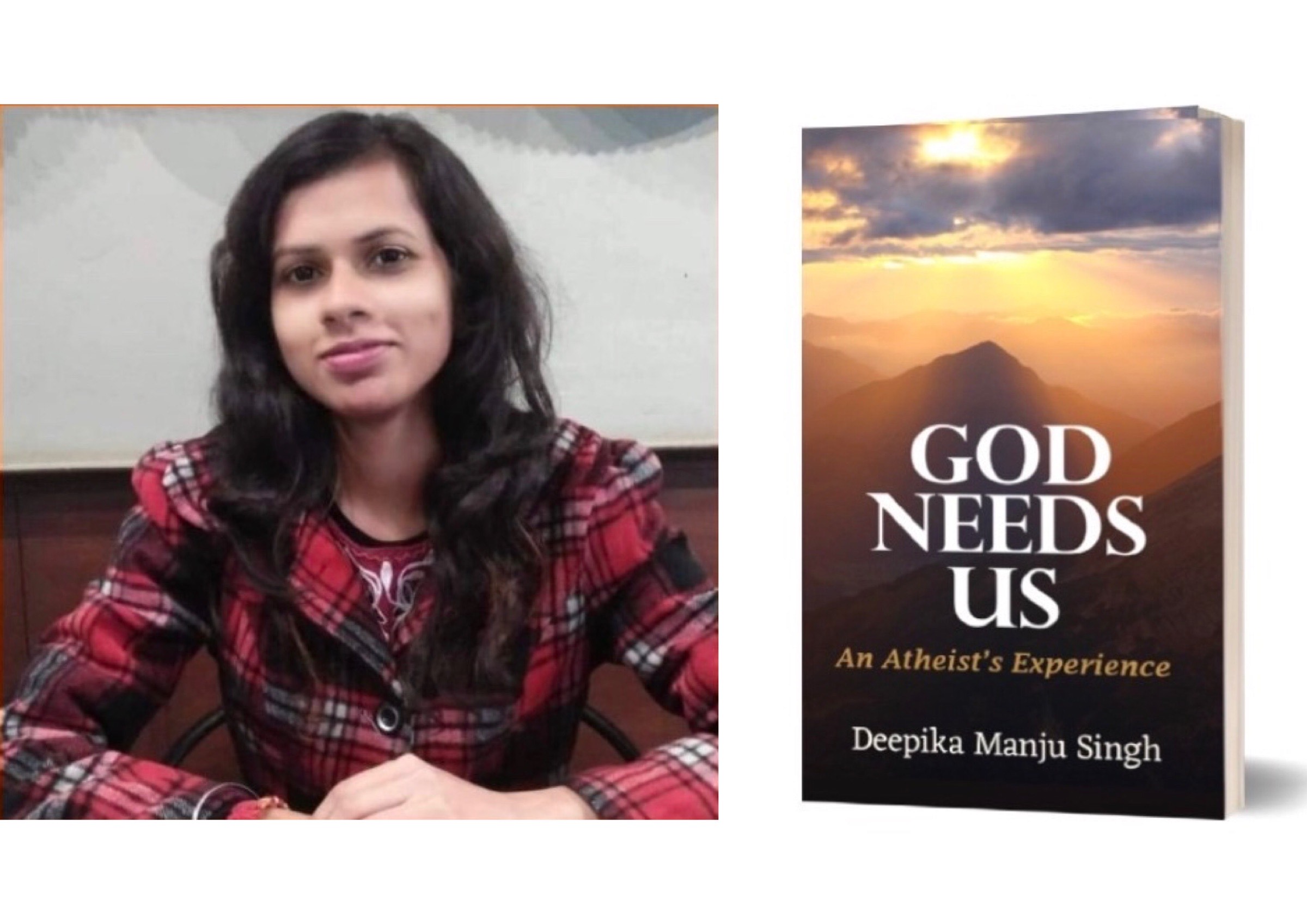It’s a common misconception that scientists reject the existence of God, but today we’re going to introduce you to Deepika Manju Singh, who wrote the spiritualism novel “God Needs Us-An Atheist’s Experience.” She is a biotechnologist who also works as a theologian, writer, poet, and social worker. Since 2018, she has been actively involved in her effort for Indian farmers.
So, Deepika, please tell us about yourself, your educational background, and much more.
“I am Deepika. I’m a Haryana native from Faridabad. At the UNESCO-Regional Centre for Biotechnology, I am pursuing my doctoral studies in the subject of plant biotechnology. I earned my master’s degree in the same field from University of Delhi. I have previous experience working at the National Institute of Plant Genome Research in New Delhi as well as the Indian Agriculture Research Institute. I decided to pursue plant biotechnology as a field of study for agricultural development since I’ve always wanted to support Indian farmers. However, as an alternative, I also opted to directly assist farmers by letting them know about government initiatives, and in some circumstances, by offering financial assistance, seeds, manure, insecticides, etc.”
“Earlier, I used to help farmers with my PhD fellowship and money from teaching jobs, but now the royalties of my book “God needs us” are directly deposited to my bank account, which is designated to farmers’ funding,” the author said.
Is this the reason you decided to write a book to support farmers?
“No. My book was not a preconceived notion. In the New Delhi shrine of Nizamuddin Auliya, I had the opportunity of meeting Amar, a complete stranger. His account of his near-death experience moved me and demonstrated how much God depends on people like us. It was so amazing that I had to write about it!”
Interesting! What is your book’s plot?
“Amar, a successful and cunning businessman, commits suicide to meet his love in the hereafter. Being an atheist, he was convinced that his devoted, God-loving wife Sakshi would be in God’s care and was resolved to locate her. The voyage to the domain of the afterlife is a series of trials and awakenings that rocked him to his core. He discovers God’s pride, strength, belovedness, knowledge, grandeur, most beautiful creation, and rebirth on Earth as a result of his search. He makes a stand against forces opposed to God. In the face of unfavourable truths, a man who could always obtain what he wanted on Earth rebuilt himself and came to see that God needed people in the universe.
This book is a winding path to grasp the broad picture from God’s viewpoint. A book that will resolve all unanswered queries and expose a reality that has never been acknowledged. a journey to rediscover goodness and humanity.”
The poetries that go with the story in your book are visible. Why do you combine the poems and the narrative?
“Expressing one’s sentiments through poetry is a lovely approach to do so because prose alone is ineffective at doing so. For instance, God encourages and reassures a farmer named Gangaram in my book when he expresses his suffering in a poem. These poems are Sufi poetry.”
What are some typical misconceptions regarding your book?
“Many people believe that I personify God in my novel, but He actually communicates with the characters through their inner thoughts. He doesn’t show up in front of them.”
Does your work as a biotechnologist or scientist present any challenges to your faith in God?
“It is a common fallacy that those who work in science don’t believe in God. Many scientists have a strong faith in God. Most people are unaware that the scientist who made a significant contribution to genetics was a priest. The Father of Genetics was a man by the name of Gregor Mendel. Scientists are renowned for influencing social change. We are thoughtful people.”
You are a comparative theology student. Why do you think that would be relevant to your scientific career?
“I wanted to find God because I’m a curious scientist, and religions are the means to do that.”
So, are you a follower of religion?
“I don’t think I’m religious; I think I’m spiritual. But I admire religious people’s commitment and self-control.”
Who do you think God is?
“My book contains my opinions.”
Did you encounter any difficulties when writing this book?
“A PhD student’s experiments are the centre of her entire world. Writing a book at the same time was a really challenging undertaking. Writing it took three years, and one year later it was published.”
What final advice do you have for aspiring writers?
“No matter how much it will be appreciated, whatever you write will have an effect, so have confidence in yourself. Your writing reflects the true words that flow from your heart.”




